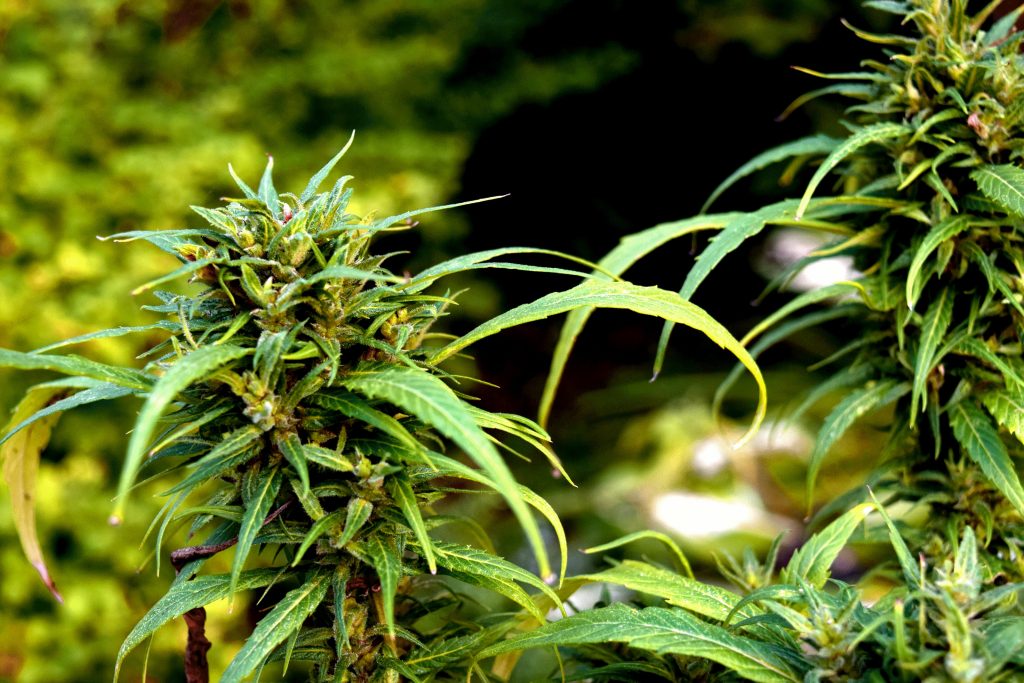
Last Thursday we published a video highlighting the fact that the Benton County Republican Women oppose recreational marijuana in Arkansas.
In response, marijuana’s supporters left a string of vitriolic comments and tried to flag the video as inappropriate on our YouTube channel.
One person commented, “Please share links to these studies [about marijuana] mentioned in the video, so we all can verify your claims.”
Here are studies and data from reputable sources about the problems that come from marijuana and marijuana legalization.
#1. Marijuana is Linked to Psychosis (King’s College London, The Lancet)
In a study published in The Lancet, researchers from Kings College London found that “people who smoked marijuana on a daily basis were three times more likely to be diagnosed with psychosis compared with people who never used the drug. For those who used high-potency marijuana daily, the risk jumped to nearly five times.”
#2. Drugged Driving Fatalities are Up in Colorado and Elsewhere (Denver Post, Pew)
According to the Denver Post, “the number of drivers who tested positive for marijuana use jumped 145 percent — from 47 in 2013 to 115 in 2016.”
In 2018 the Rocky Mountain High Intensity Drug Trafficking Area released an official report regarding the effects marijuana legalization has had on Colorado.
The report found that since Colorado legalized marijuana in 2012, traffic fatalities had risen 35% statewide, but marijuana-related traffic deaths had risen 151% statewide.
The report also found that more than one in five Colorado traffic deaths was marijuana-related in 2017, and the annual rate of emergency room visits related to marijuana has increased 52%.
Pew reports that in Washington, a 2016 report by the AAA Foundation for Traffic Safety found fatal accidents of drivers who recently used marijuana doubled after the state legalized marijuana.
#3. Marijuana Legalization Can Raise Insurance Costs (Chicago Tribune, Insurance Journal)
Last summer the Chicago Tribune reported that marijuana legalization could cause car insurance premiums to increase in Illinois.
Experts say insurance premiums are affected by the number of claims in a community.
Because marijuana is tied to increased traffic accidents and deaths, marijuana legalization can drive insurance premiums higher in a community.
In a 2019 article published in the Insurance Journal, analysts with the Highway Loss Data Institute estimated that “the frequency of collision claims per insured vehicle year rose a combined 6 percent following the start of retail sales of recreational marijuana in Colorado, Nevada, Oregon and Washington, compared with the control states of Idaho, Montana, Utah and Wyoming.”
#4. Marijuana Taxes are Unpredictable and Often Come Up Short (Pew Charitable Trusts)
Last August, Pew Charitable Trusts reported that “in Nevada’s first six months of collecting marijuana taxes, revenue came in 40 percent higher than budget officials expected, but in neighboring California revenue was 45 percent below projections in the first six months of collecting marijuana taxes.”
When state marijuana tax revenue falls short, taxpayers feel the burden of making up the difference.
We’re already seeing this in Arkansas, where the state is millions of dollars in the hole on “medical” marijuana.
In 2018 the Centennial Institute at Colorado Christian University commissioned a study to better understand the economic and social costs of legalized marijuana.
The study found that “for every dollar gained in tax revenue, Coloradans spent approximately $4.50 to mitigate the effects of legalization.”
Data analyzed by the group Smart Approaches to Marijuana found that employers in Maine, Oregon, Nevada, Massachusetts, Colorado, California, and Washington have problems with employees testing positive for marijuana — which carries significant safety concerns.
Smart Approaches to Marijuana writes,
A study conducted in Washington during 2011-2014 found that the percentage of work-related injuries and illnesses was significantly higher among marijuana users (8.9%) compared to non-users (Marcum, Chin, Anderson, & Bonauto, 2017). Insurance claims have become a growing concern among companies in legalized states because, if marijuana use is allowed or drug testing ignored, employers are at risk of liability claims when a marijuana-related injury or illness occurs onsite (Hlavac & Easterly, 2016).
All of this ends up costing citizens through taxes and economic loss.
#5. Marijuana Legalization Doesn’t Eliminate the Black Market (PBS, NPR)
In June, PBS reported that marijuana legalization has not eliminated Colorado’s black market for marijuana that’s grown and sold illegally.
Marijuana from Colorado is being transported illegally across the country to be sold in other states.
In 2018 Arkansas State Police seized hundreds of pounds of marijuana being shipped illegally from Colorado.
Many growers and sellers also turn to the black market to avoid state taxes or other costs.
PBS reports,
And across Colorado, raids on illegal marijuana grow operations have increased in both rural and metropolitan areas, as law enforcement tries to keep up with the burgeoning black market.
When Colorado voters approved legalization of marijuana, no one imagined such an opportunity to cash in on illegally grown pot.
Likewise, last June NPR reported on the number of illegal marijuana operations being busted in Colorado.
One prosecutor told NPR, “I’ve never seen the black market for marijuana as robust and as expertly cultivated – forgive that pun – as I have right now.”
In May of 2019, authorities in Colorado recovered two tons of finished marijuana bound for other states in a single bust. In another drug raid, NPR reports law enforcement seized 1,100 illegal marijuana plants from a single home.
Conclusion
The research really could not be more clear:
Marijuana may be many things, but “harmless” simply is not one of them.




